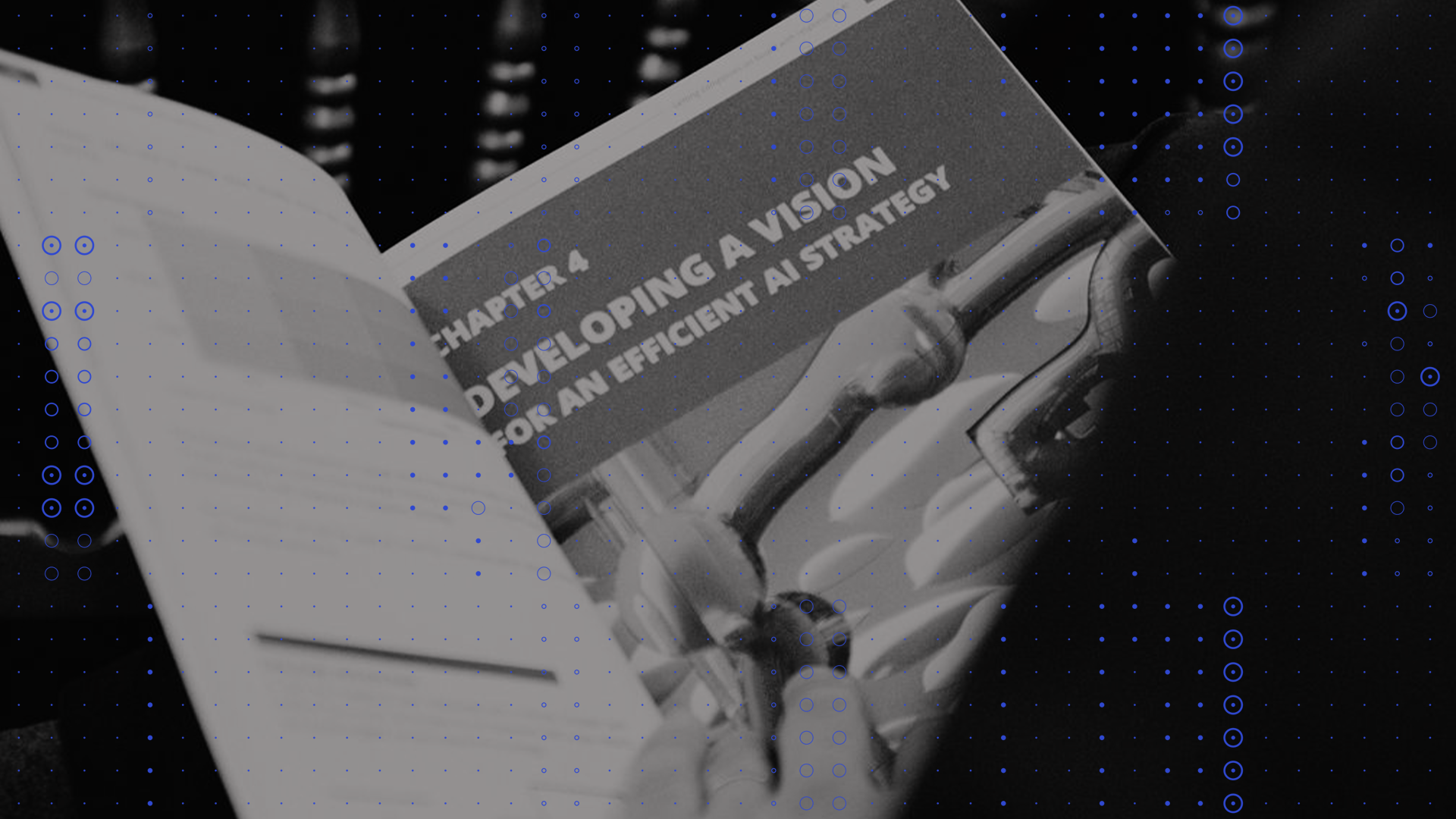


Metalab is proud to announce the release of the White Paper on ‘Getting companies on Board with responsible Artificial intelligence’, designed in collaboration with AmCham France.
Read the full White Paper here.
This White Paper, chaired by Benoit Bergeret and Julien Malaurent, is the result of eight months of work between AI practitioners, AmCham members and academic representatives. It offers reflections, clear and concrete recommendations for the leaders of French SMEs on a major economic issue: accelerating the adoption of AI to gain competitiveness. This publication highlights the main obstacles to the development of AI in companies and proposes tools and levers to overcome them and engage in a responsible AI strategy, adapted to the specificities of organizations and focused on performance.
Artificial Intelligence (AI) has been qualified by OECD as a General Purpose Technology (GPT), same as electricity and internet in the past. In other words, it is a game changer. It has the potential to revolutionize Small and Medium-sized Enterprises (SMEs) by enhancing their competitiveness. However, successful AI implementations require careful planning, consideration given to human factors, proper data governance, the development of trust in the AI-based systems, and responsible implementation, with ethics and bias reduction, as well as AI’s environmental impact, also being key success factors. This is particularly true for SMEs which do not necessarily have the resources of larger organizations. Note that in this white paper, the terms Artificial Intelligence (AI) and Machine Learning (ML) are used interchangeably.
This white paper is the outcome of an eight-months long conversation among AI practitioners, led by ESSEC Metalab and Amcham France. Throughout monthly working sessions, leveraging their past experiences and informed expertise, members of the working group have developed this contribution with the aim to provide concrete reflections, takeaways, and recommendations for SME executives.
Note that in this white paper, we include French ETIs and the largest PMEs under the term “SME”, as explained in Chapter 11 - Glossary. The Glossary should be seen as a key resource in this white paper and the reader is invited to having a look early on, as many AI-specific terms that may need clarification are used in this document.
In this contribution, we first discuss the importance of establishing a strategic vision for AI implementation. SMEs are advised to first assess their AI and data maturity score, create a roadmap for implementation, and consider hiring an AI dedicated team. We provide examples of strategy frameworks that apply specifically to AI transformation. We recommend SMEs enter into practice-sharing with startups, other companies, or research organizations to increase their AI literacy, develop an understanding of the ecosystem of resources that’s available to them, and get access to successful case studies and learn from those.
Second, we emphasize the importance of the human factor for fostering a collective understanding of AI, at any levels of the organization. Companies must create a vision and agenda for AI that guides the entire organization, while communication, transparency, and understanding will remain crucial for building wide acceptance of AI. The impact of AI on employment should also be considered, bearing in mind that upskilling the existing workforce is vital for successfully putting AI to productive use.
Third, we highlight the importance of acquiring and cultivating the right skills, especially given the global shortage of data scientists and engineers. For that, short-term workarounds are needed, and upskilling of non-AI specialists is encouraged. Cross-disciplinary education and training are also necessary for success, while partnerships with research laboratories and universities can provide fast-track access to high-skilled profiles.
We then underscore the importance of proper data governance and management practices to enable scalability. As the quality and quantity of data impact the outcomes of AI systems, the data lifecycle should be managed with proper governance. Poor data quality is indeed a common pitfall, leading to possibly disastrous outcomes. Additional challenges to data and AI governance in SMEs include a lack of executive sponsorship, poor communication, lack of training and education resources, as well as bias and unfairness.
We insist on the importance of building trust in AI, which is critical for adoption. Fairness, explainability, accountability, transparency, reliability, robustness, privacy, security, human involvement and oversight are all necessary ingredients. Regulators, from EU, China and the US, are actively working on the regulation of AI (i.e. AI Act) and have introduced legal frameworks to ensure a trustworthy implementation of AI across industries.
We highlight the importance for AI projects to be governed by responsible principles. SMEs may face challenges due to a lack of organizational preparedness, but they should take action to reduce the digital carbon footprint of AI. The European Commission, OECD, US Federal Government, China’s Ministry of Science and Technology, and the Global Partnership on AI all propose guidelines for responsible AI development which should be considered by SMEs when embarking on AI technologies.
Last, we have a brief look of what SMEs should expect from AI and other disruptive digital technology in the near future, in order for them to keep their eyes on the ball that keeps accelerating. An appendix has been added for reference on a few possible public funding alternatives available to French SMEs; the upcoming AI Act; and a few additional resources we think our readers may find useful to go beyond this white paper.
We hope this contribution will be regarded by SMEs as a useful set of reflections and recommendations for embarking on the path of successful adoption of AI. By doing so, SMEs can remain competitive in an increasingly complex, resource-limited and fast-moving world.
Benoit Bergeret & Julien Malaurent
Co-Directors, ESSEC Metalab for data, technology and society
Co-chairs, AmCham France Working Group on AI Adoption